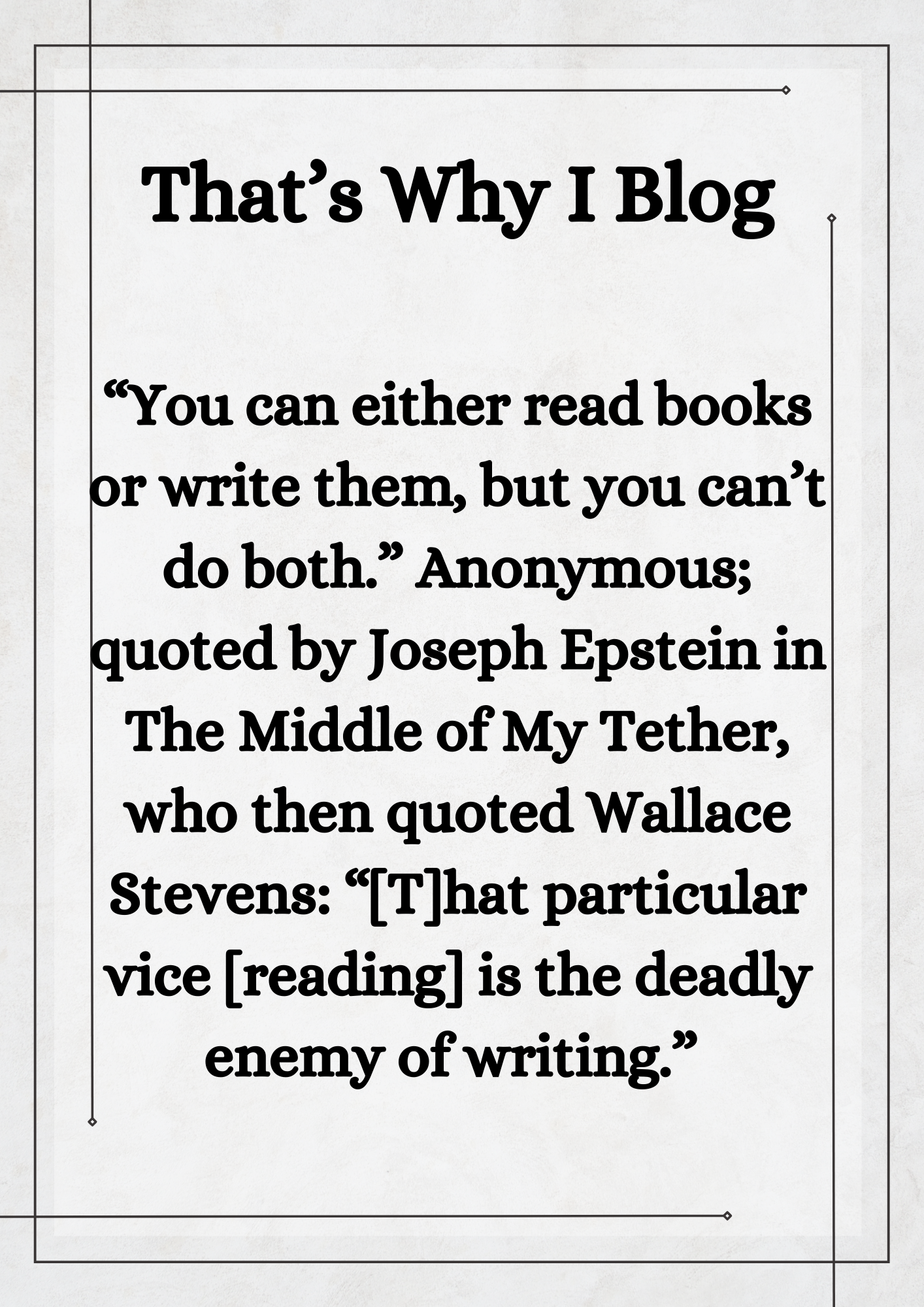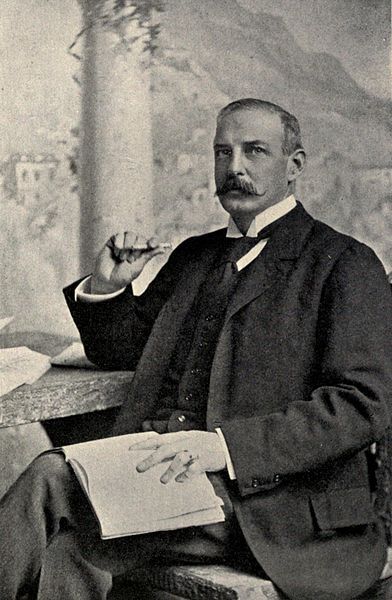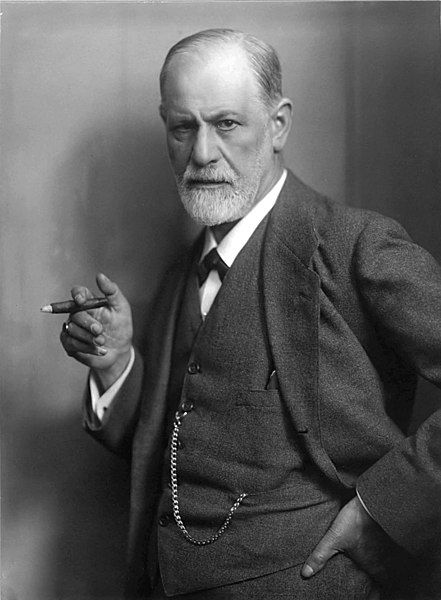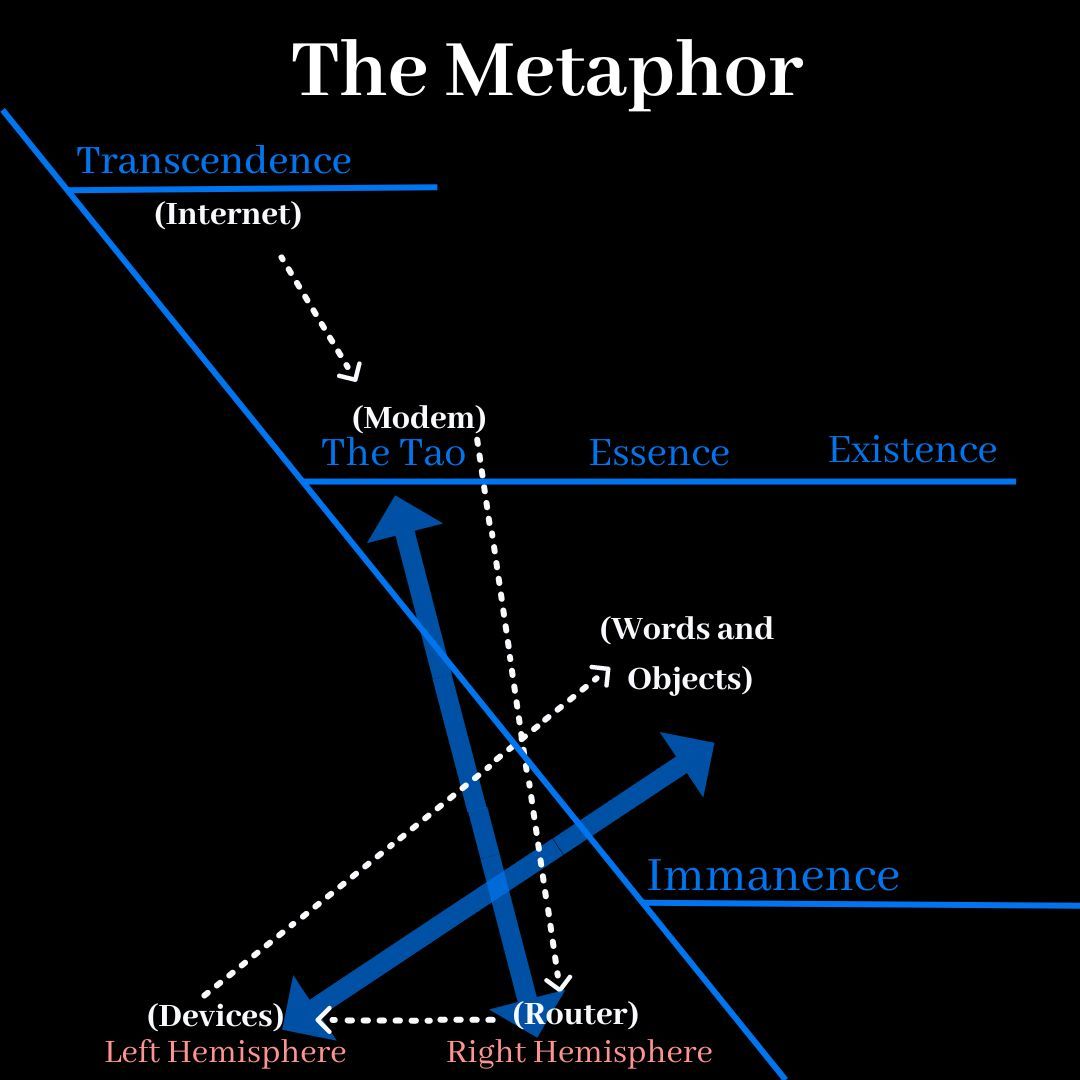Scrolling Blog: May 2023

May 31, 2023
The Boromir Option
It appears Patrick Deneen has rejected the Benedict Option in favor of the Boromir Option, with special disdain for Albert Jay Nock's observation that a man performs his societal role by improving himself, without taking the reigns of power, just as Socrates refused to escape the death penalty because that would make himself unjust. The good man, Gandalf showed us, refuses the Ring because that would make himself evil.
Deneen isn't willing to drink the hemlock; he wants to administer it. The administrative state, which is strangling the life-blood out of society, is apparently now Deneen's beloved pet (pet python: just as long as the expert, talented, and good people hold the leash, it's a good thing).
I would buy the book and read Professor Deneen's arguments first-hand, but life is short and my patience shorter for arguments that appear to embrace the premise that the Bureau of Motor Vehicles is a great thing (it just, you know, needs to be tweaked a little).


May 30, 2023
Monday Column
Postponed a day, due to the holiday:

I Think the ESB Project Might be 100,000 Words Long
If nothing else, it's getting close. I never had a "word goal," but I kinda figured it'd come in around 60,000 or so (20,000 words for each part)
We are now firmly in Part III of the Existence Strikes Back project. Part I "proved" (very loose, almost ironic, quotes there) the Tao exists. Part II looked at modernity's rejection of the Tao and the problems associated with the rejection. Part III looks at the various ways our modern culture (and now, postmodern culture) has tried to get the Tao back, including efforts of our right hemisphere to re-assert its primacy and re-connect to the Tao.
I think Part III might be the most enjoyable, with topics ranging from Albert Camus (today) to Flannery O'Connor to Seinfeld. I'd anticipate about 20 essays total in this part, bringing the total essays to around 85 (right now, there are 65-70 essays, depending on how you count).
What will I do once it's done, probably in early 2024? I don't know for sure. I'll probably continue to fill-in the story, providing more information and flushing out "plot points."
I'll probably better organize the parts, add connectors, and re-issue the entire thing in book form.
I'd also like to revisit other writing projects, like my attempt to update and re-tell Belloc's important Europe and the Faith.
It's hard to say. For now, I'm just enjoying this third part, which, some of you might recall, I wrote over 20 years ago and am now re-writing in light of my better understanding of St. Thomas' "Act of Existence" (which I call "the Tao") and St. Iain's Hemisphere Hypothesis.
May 28, 2023
The NYT Guest Column Quoted Yesterday
It's interesting: I found the article at Front Porch Republic's "Water Dipper" feature (which, if I may expose myself in public, is where I find nearly 10% of the essays featured at TDE). The frustrating thing about the W.D. stories, however, are the paywalls: they link to stories that require a subscription.
This link, however, bypassed the NYT paywall and it came with a pop-up window that said the link was shared as a gift from an NYT subscriber. Apparently, subscribers to NYT can share 10 links every month, so FPR "burned" one of its ten monthly shares on this essay.
The free market will adapt to new market conditions. NYT has gone to the devil, yes, but it's adapting to the new hell.

Martin Amis
Catholic Matthew Walther at The Lamp applauds Martin Amis, the "bad boy of English letters."
Waugh foresaw a world in which every writer interested in prose style for its own sake would face the choice of becoming either an “artist or a prophet,” who could either “shut himself up at his desk and selfishly seek pleasure in the perfecting of his own skill” or “pace about dictating dooms and exhortations.” What Amis reminded us is that it was perfectly possible to do both.

May 27, 2023
"Outside the Modern Limits" morning newsletter is this morning's essay.

May 26, 2023
Brews You Can Use

May 25, 2023
In Praise of Clichés
Avoid stale phrases. Orwell called them "dying metaphors." Robert Fiske called them "moribund metaphors." They're sayings that have been used hundreds of time but haven't yet made it into regular vernacular.
"Emotional rollercoaster," "It's a jungle out there." Things like that.
They're the stylistic equivalent of the high five.

They're closely related to the cliché. A cliché is a trite phrase that substitutes for thought. If you want to assure your friend, or your reader, that you're not really engaged in the dialogue, use a cliché.
Friend: "I don't know what to do. My husband left me with five small children. Sob, sob, sob."
Response: "Into every life some rain must fall."
That phrase was beautiful when Longfellow created it, but it has become ugly. It is now a phrase that assures the other person, if only implicitly, that you really don't give a s*** about her problem or you're simply too stupid to offer a thoughtful response.
I believe every decent writer agrees with the above.
But clichés might not be entirely bad. They might reveal a lack of explicit thought, but maybe they contain a level of implicit thought: embodied wisdom, perhaps.
They might, in other words, show a lack of left hemisphere thinking but simultaneously show a level of respect for implicit wisdom that, though it might escape immediate articulation or clarification, the right hemisphere appreciates.
That, anyway, is what I think the essayist here, drawing on the interesting David Foster Wallace, is saying.
This is not the praise of cliché that I started out to make. It is, rather, a plea for contentment with basic wisdom. And it is condemnation of hucksters who cannot tell the difference between originality and foolishness, or creativity and novelty. There is such a thing as cliché. But let’s not, in our attempt to avoid cliché, avoid reality as well.

May 24, 2023
Michaell Polanyi
Notes/Half-Baked Essay. It started as a "Briefly" post but morphed into a short essay of sorts.

May 23, 2023
Another Example of Counter-Conduct
If modernity is the left hemisphere's creation, then pursuits that appeal to the right hemisphere, or require us to give primacy to the right hemisphere, are acts of rebellion against modernity.
Example 1: Prose is the left hemisphere's flex: the earliest written records are from bureaucrats. Poetry is the right hemisphere's pursuit. Therefore, the poet is a rebel.
Example 2: Rhythm is the only element of music that is strongest in the left hemisphere. All other aspects of music thrive in the right hemisphere. Therefore, listening to Claude Debussy's "Clair de Lune" is an act of rebellion.
Example 3: Electricity and motors give us control over everyday activities, greatly increasing our efficiency in our various pursuits (purposes). Control, efficiency, and purpose are values of the left hemisphere. The right hemisphere values process over accomplishment and doesn't seek control. I suspect "efficiency" is as alien to the right hemisphere as "leisure" and "non-competitive play" are to the left. Therefore, the act of living without electricity on the fringe of society is an act of rebellion:

May 22, 2023
Monday Column
Today officially marks entry into the third phase of the Existence Strikes Back project: Showing how the Tao (the "Act of Existence") has been striking back over the past few hundred years (roughly, 1800 to today).
I wrote this third phase about 25 years ago (consisting of about 30,000 words), but it wasn't part of a larger schema, and the larger scheme shifted my analysis, so every section of the previous effort will have to be re-written, which is fine. It helps my crystallize my thoughts, adapt it for Internet prose, and to create a better overall project, with links and other information buried within.
I'll be writing about Albert Camus, Zen, St. Therese, the occult, psychedelics and other engaging topics. I hope you enjoy it.

May 21, 2023

May 20, 2023
Experimental Feature

May 19, 2023
Brews You Can Use
The entire TDE editorial staff is laid low with the worse seasonal allergy attack ever (f'ing Putin), plus the women in their lives are piling ten large commitments on them over the course of 20 days.
The staff will persevere, just as long as the gin supplies don't run low (the mere threat of going dry disrupts).
It reminds me of someone asking W.C. Fields about the six cases of gin he was hauling home right after WWII broke out. He replied, "I think it's going to be a short war."

May 18, 2023

May 17, 2023
The Age of Average
Giving Way to a New Age of Stylish and Graceful Prose?
I guess this piece has been making its rounds. The collages are remarkable. Everything, Murrell observes, looks the same these days. It's nice stuff, but that's all it is: nice. Things aren't unique.

The essay prompted the Ghost team to send a newsletter last week, speculating that the Age of Average is going to accelerate with AI, leading more people to crave the genuinely original and the unique. The Ghost team says the age of average writing and sloppy Internet prose might be over: readers are going to start insisting that writers can, you know, write.

I like to hear such things, but I have my doubts. Speed reading, after all, has been around for 50 years, and the speed reader doesn't care about style. He just wants to gorge.
Years ago, a friend took a speed-reading course. He was explaining it to me (rough quote):
"The course is teaching me to ignore stuff that isn't relevant. There's a ton of stuff on each page that doesn't matter. No one, for instance, reads a sentence and thinks, 'Boy, that's a well-placed comma.' Who cares?"
I just smiled and nodded and thought to myself, "I read sentences and think about the commas."
Part of me was smug about it; part of me was embarrassed about it. I just attributed it to being a guy who thinks F. L. Lucas' 1962 book Style is one of the finest reading experiences out there.
TDE readers know I have been struggling for a few years with the tension between writing well and writing for money. My heart agrees with Flannery O'Connor's observation that the writer needs to leave behind the "niggardly part of the ego" and not write for money. My head nods reluctantly when I recall Samuel Johnson's observation that, "No man but a blockhead ever wrote but for money."

May 16, 2023

May 15, 2023
Monday Column
This was Saturday's "Outside the Modern Limits" newsletter. For those who subscribe to the newsletter and frequent TDE, my apologies for the repeat. The multiplicity of affairs has me in a headlock these days.


May 14, 2023
Happy Mother's Day
Or: Happy Slave Day, for the fathers, of which I'm one, so just this today:

May 13, 2023

May 12, 2023
For Your Weekend Bar Fare

May 11, 2023
An Essay from "Outside the Modern Limits"

May 10, 2023
Comedy in Austin
Comedy might be a form of counter-conduct, especially the third-rail stuff.
Rogan speaks over the applause to get into his first crack—a poke at how the media has covered the Mothership. His favorite, he says, was an article that described the joint as an “anti-woke comedy club.”
“Anti-woke,” he scoffs, his eyes wide in disbelief. “Isn’t that just comedy?”
The audience roars with applause.

Nefarious Movie Review
Young Michael Rodney weighs in with a movie review.
I'm reminded of T.S. Eliot, who wouldn't read Flannery O'Connor's work because they unsettled him. I feel the same about horror films, but a lot of my favorite people really enjoy them.

May 9, 2023
Blessed de Lubac?
A huge development for folks who appreciate that Fr. de Lubac diagnosed the problems with modernity (gnosis, though he didn't call it that) and prescribed a potential cure (more Dostoyevsky).

The Briefly Section
Readers may have noticed a growing presence at TDE: The Briefly Section
The Briefly posts were originally meant to provide a hard link for readers, in case they wanted to reference something in the Scrolling Blog. But it has become apparent that they can do a lot more than that. They act as the old "TDE Annex" (where overflow materials--the kind of stuff that would get buried in elaborate footnotes--would get relegated). They are a nice home for items from the "One-Thing Files."
And they provide a nice outlet for micro-essays that merit notice, but perhaps not a featured position, like today's small slice about Steubenville, Ohio.

May 8, 2023
A new series. I'm guessing it'll run through 2024. Fr. Mike can do the Bible in a year, but I can't do the Tao Tiny Thing in less than 18 months. Go figger.

May 7, 2023
I'm not convinced this essay is worth featuring, but it's from UnHerd (quickly becoming one of my favorite sites), and I figured I'd run it as a small tribute to the unfairly-maligned Gavin McGinnes (a Vice founder).
If you can get past the gagging quote that only New York Times and the BBC do journalism correctly, the rest of the piece is pretty good.
The legacy cable networks such as CNN, MSNBC and Fox revived their ailing fortunes through a constant focus on the Trump reality show, and the rest of the world retreated back into obscurity — unless it could be viewed through Trump’s prism. As the online world polarised, Vice’s original YouTube fanbase, which skewed young male and often hard Right, vocally resented the radically progressive orientation of much of the company’s new output.

May 6, 2023
New Diagram
It's not perfect, but it tries to show the interplay between the Existence Strikes Back (or, more accurately, "The Tao Strikes Back") project and The Hemisphere Hypothesis.

Progress/Regress: Simultaneously
A culture can both progress and regress at the same time. Voegelin said that. It should be every gnostic culture's slogan or tagline.
Sometimes, progress isn't even progress.

May 5, 2023
It's Kentucky Derby Time
This week's Brews You Can Use starts with the pretensions of the Kentucky Derby and the Mint Julep and ends on the inner-city train tracks with Night Train "wine."

May 4, 2023
David Hume on War
He was a remarkable man. He seems like a man with a religious disposition and detachment, but was one of modernity's first explicit atheists. Interesting fellow, that David.

The Orc Lays Down His Harp to Kill an Orc

Belloc Sighting

But with a Belloc Refutation

May 3, 2023
#albertnock pic.twitter.com/rLHmLeDbfm
— The Daily Eudemon (@TheDailyEudemon) May 2, 2023
Everybody's Talkin'
I'm not sure, but it seems there has been a small burst of interest in the art of conversation. Maybe it's the conversationalist podcast boom. Maybe it's a product of the lockdowns: people didn't appreciate intimate conversation until they couldn't have one.
I'll admit, I've been more interested in the subject, often wondering if I'm simply too narcissistic for good conversation, but actively engaging it when presented, both out of curiosity about whether I can do it and out of the challenge of doing it well. I maintain my general aversion to small talk, but actual conversation? I'm finding it more appealing . . . finding it good. When does "small talk" cross into "conversation" and when does "conversation" degrade into "small talk"? I don't know. I'll continue to ponder it.
In any event, there's a book about the subject, which Front Porch Republic reviews here.

May 2, 2023
Exploring All the Ways that AI isn't Human
It's a good piece, but he doesn't get into the right hemisphere desideratum, much less the inability to connect to the Tao.
If you want to hear what McGilchrist says about AI, there's a video here. He's greatly concerned, agree that AI is a left hemisphere gone rogue, but like me, he doesn't have much practical advice, besides slowing down AI so our wisdom (i.e., connection to the Tao) has a chance to catch up with, and wrangle, the left hemisphere.

The Rumble Stumble
So, I was ready to launch The Daily Eudemon Rumble channel and, shocker, it doesn't work. Well, the channel works just fine, I suppose, but I can't effectively embed Rumble videos at TDE. The videos come through as monoliths, occupying the entire screen. So until I figure out how to make them behave, they'll be relegated to the Briefly section of TDE, with links here.
The first:

I'll continue to work on their quality, both in verbal quality and optics. For starters, I'll try to pull my face back a mile or more, so my head doesn't fill the entire screen. The effect is rather startling, so if you're blind, be thankful.
May 1, 2023
May Day
Welcome to International Workers' Day. But if you're not a pinko, welcome to the most beautiful time to live in the Midwest (well, October might be prettier . . . it's a debate).
Or you can celebrate Bilbo's return to Rivendell, which happened on May 1, 2942. I'm working my way again through The Hobbit and LoTR, this time enjoying the splendid narration by Andy Serkis (who played Gollum in the only good Middle Earth screen production). I got all four audiobooks for $24, which might be the best audiobook deal ever. I'll probably buy The Silmarillion on audiobook, too, but it's not Serkis and it seemingly never goes on sale, so maybe not.
Monday Column








